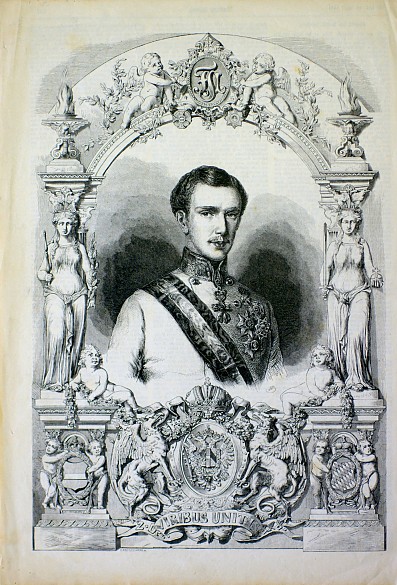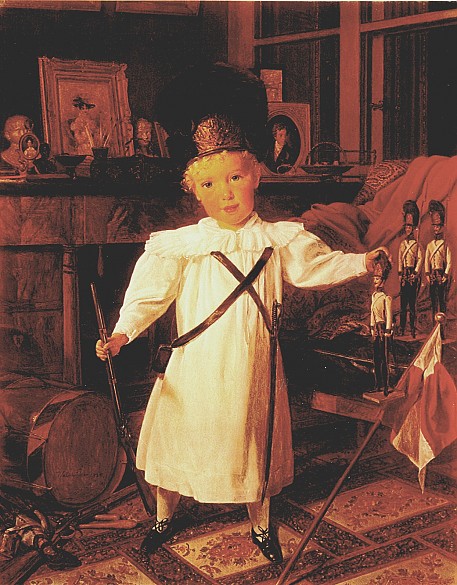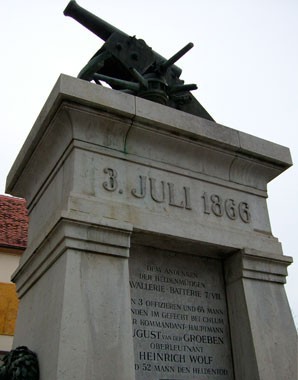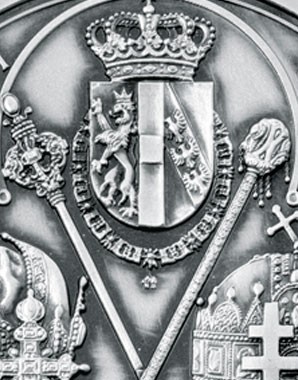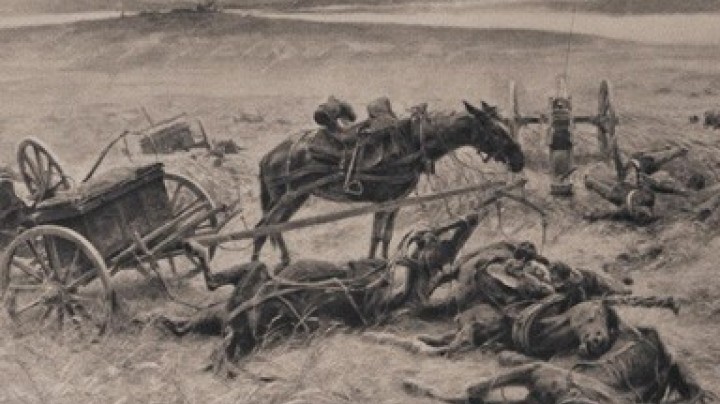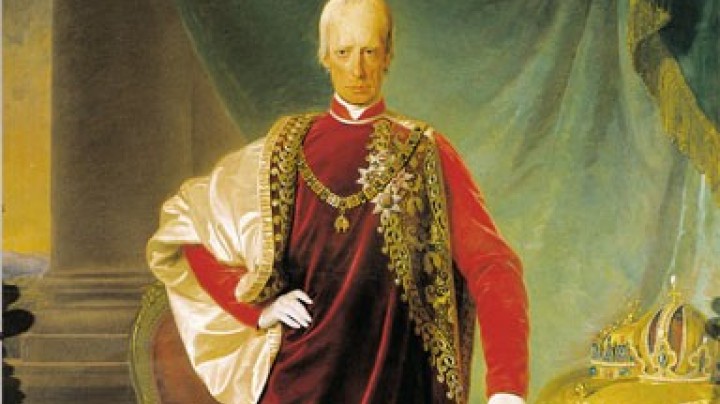The whole world against the Emperor?
Emperor Franz Joseph feels himself persecuted by ‘the whole world’. His response is to don his uniform and head off for war. Some way of making friends!
Emperor Franz Joseph in uniform – hardly a rare picture. Nevertheless, it reflects the Emperor’s special predilection not only for splendid uniforms but also for the wars waged during his reign. Even as a child Franz Joseph had played with soldiers and military training was an important part of his education. In the course of time, however, the child playing with soldiers was to turn into the Emperor sending real soldiers to war in his name.
In the field of foreign affairs, Franz Joseph’s most important problems were the ‘Italian question’ and the ‘German question’. The war against Piedmont-Sardinia and France – with the infamous battle of Solferino – led to Lombardy being lost to Piedmont in 1859, though the Habsburgs retained Venetia. This and other defeats seriously dented the prestige of the Emperor and his system of rule; in addition, the high costs of war compelled him to make concessions to the liberals.
While in 1815 and even in the years after 1848 the German question had been tackled along the lines of a ‘greater German solution’, this general orientation changed from 1861 onwards: King Wilhelm I of Prussia and his minister-president Otto von Bismarck pressed for the ‘smaller German solution’, which excluded the Habsburgs. Austria’s defeat at Königgrätz in 1866 opened up the way towards the German Reich. As a result of these defeats, Franz Joseph had to make further concessions, which led to the Compromise with Hungary and the breakthrough of liberalism. The Emperor saw himself as a victim of ‘infamy and clever deception’, writing to his mother as follows: ‘When one has the whole world against oneself and no friend left, then one has little prospect of success, but one must defend oneself as long as one can, do one’s duty to the end, and then finally go down with honour.’ This statement is an excellent evocation of the lonesomeness of a would-be absolute ruler and of the principle of ‘doing one’s duty’ that for Franz Joseph summed up the task of the monarch.
The neo-absolutist ruler Franz Joseph thus suffered some painful political defeats. His formal power collided not only with those in power in Italy in Prussia but also with internal conflicts. However, he succeeded in holding his position as emperor until his natural death – and also led the Danube Monarchy into the First World War.
